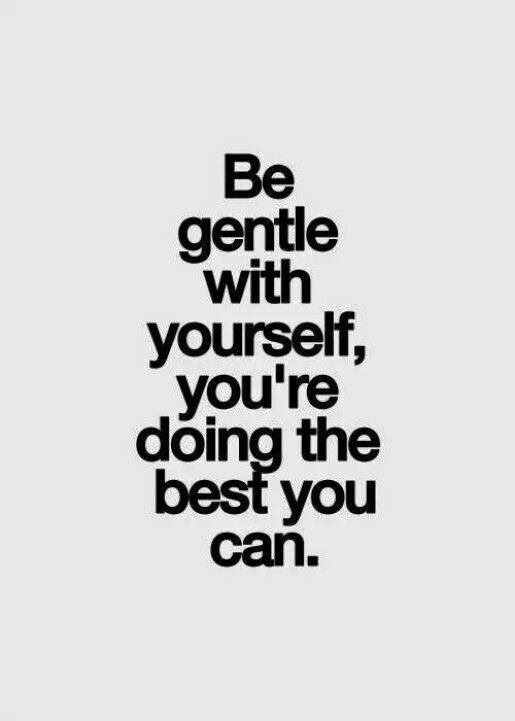Clients often ask me how long therapy should be for them. I always tell them I can't answer that. The therapeutic path is not a simple one and is often painful and challenging. Yet it is incredibly rewarding when everything starts to fall into place. When I meet with people for the first time, I usually ask them what they are hoping to get out of therapy and how they feel their lives would be different. Then, as time progresses, I check in with them to see how they feel the work is going and to what extent they feel their goals are being met. Gradually and patiently the answer will come to the surface; that in fact time isn't important, it's the context of that therapeutic duration.
Ever been in a situation where somebody is telling you a story and you get a PANG of emotion (fear, rage, anxiety, sadness)?
It may take you by surprise and leave you feeling confused. Thinking that it's disproportionate to what was happening...well you were triggered! Some of us are great at identifying these triggers and some of us need more help.
Triggers can be anything from environmental factors, opinions, certain words or even just people! Triggers also tend to have a physiological reaction: palpitations,dizziness, hot flushes, nausea etc.Identifying triggers is no easy feat but it will certainly serve you. Without becoming aware of triggers you are at the mercy of your emotions manipulating you.
Pay attention to your physical reactions. Like the ones I outlined above.
Be mindful of any thoughts or words that whizz through your head after the physical response
Notice your surroundings: who are you with, what are you doing, what can you see?
What were you doing before you were triggered?
Keep a journal on your phone or at home. See if you can find a pattern
Be patient! This takes practice and time so show yourself some self-care!
Every week in the UK 84 men take their life by suicide, one man every two hours. Suicide is the biggest killer of men under the age of 45.
Support @calmzone new campaign #project84 they partnered with the internationally renowned artist, Mark Jenkins, and his collaborator Sandra Fernandez, to create 84 individual sculptures. Friends and family members of the deceased helped in the creation process of the figures. Each one, a poignant reminder of a real life lost and a call to society to come together and ultimately take a stand against male suicide.Visit the sculptures on London's Southbank Promenade from 26th March or alternatively head to their website to read some of the stories of these men as told by family and friends.
Recently I have found myself thinking a lot about forgiveness. Partly because of articles I am writing about trauma and partly due to research I have been doing on culture and religion. Forgiveness is intertwined in most religions and indicates holding power.
There is this idea that in order to move forward, we must forgive. That with forgiveness we will find true happiness and freedom. I don't believe this is the case. I am not talking about disagreements or arguments that are had between couples or family members. It's those who have experienced trauma or abuse at the hands of others, individuals who walk into my clinic room, holding pain and suffering. Although the idea of forgiveness seems simple, it can be very emotionally loaded and complex, particularly for trauma survivors.
I understand, of course, that if a person comes in and finds that the word “forgiveness” resonates, I do not discourage it. Forgiveness is highly personal and individual. You do not need to forgive so you can move on, instead move on in the right way for you.
We all know the "New Year, New Me" phrase that is thrown around regularly this time of the year. We set high expectations for ourselves and attempt to change those pesky "flaws" that we see.
Many of our resolutions actually re-enforce most of the negative conceptions we already have and guilt begins to flourish when the resolutions fall through.
Instead, why not allow this year to be the one when you put your own needs first, to honour where you are and what you've accomplished no matter what.
Can you make this the year of asking for help and allowing yourself to accept support? To be guilt free and self compassionate?
Life is too short and too uncertain to spend it surrounded by things that drain you. Perhaps 2019 can be about taking stock of what and who feed your soul and get more of it!
Anxiety is isolating and can feel like it is eating you up from the inside. The physical manifestations can be debilitating and exhausting. If you look closely at anxiety, you can begin to see that our thoughts, feelings, behaviours and physical symptoms all interact and combine to keep our anxiety going. Things like mindfulness, distraction techniques, CBT skills can assist with alleviating it. However it's important to get to the root cause. Talk to a friend, family manner or therapist to understand yourself better and what is triggering it.
Suffering in silence with anxiety only exasperates it.
Suicide is the single biggest killer of men aged under 45 in the UK. Men remain three times as likely to take their own lives than women. 4,382 men committed suicide last year in the UK. There is a preconceived notion that those who commit suicide are unwell or have had huge life obstacles. Actually, 75% of people who take their own lives have never been diagnosed with a mental health problem, and only 5% of people who do suffer from depression go on to take their own lives.The reasons behind every individual suicide are unique and complex and not simply explained.
Calm is the number one charity that is focused on suicide in men. Debunking myths and stigma, Calmzone is doing all it can to reduce these suicide rates (which has happened over the last 3 years).
Calm tackles this by giving men a safe place to talk. Its helpline is ru by eight staff members who work seven nights a week fielding over 5,000 calls and web-chats a month.
CALMZONE:0800 58 58 58
SAMARITANS:Call 116 123 any day, any time.
Easier said than done and of course we all do it. But it's important to remember that Instagram is not real life. Most of the time it highlights best parts of people's lives while ignoring the undesirable. Social media comparisons can have a detrimental effect on mental health. The endless comparisons steal the confidence and self-worth from under your nose. So try to remind yourself that it's not real life, you're looking through a lense that someone has set up for you to view. If you feel that you can't stop comparing; unfollow. Your self-care needs to be prioritised.
1 in 4 people in the UK will experience a mental health issue this year.
If you are worried about someone it can be difficult to know what to do. When you are aware there is an issue, it is important not to wait. Waiting and hoping they will come to you for help might lose valuable time in getting them support. I have spoken to people previously who have been too afraid to address mental health with the person they are worried about. Well I say stick on the kettle and use some of these tips:
1. Set time aside with no distractions
It is important to provide an open and non-judgemental space where the person feel safe and secure.
2. Let them share as much or as little as they want to
Let them lead the discussion at their own pace. Don’t put pressure on them to tell you anything they aren’t ready to talk about. Sometimes it's just giving people time.
3. Don't try to diagnose or second guess their feelings
You probably aren’t a medical expert and, while you may be happy to talk and offer support, you aren’t a trained therapist. Try not to make assumptions about what is wrong or jump in too quickly with your own diagnosis or solutions
4. Listen. Really listen.
Listening is actually quite a difficult skill to master. Most people listen to respond. Try to stop your mind wandering and focus on what they are trying to tell you.
5. Offer them support with services.
It maybe important that they see a GP in the first instance. Encourage them to do so with the support of yourself so they don't feel alone.
Anxiety is isolating and can feel like it is eating you up from the inside. The physical manifestations can be debilitating and exhausting. If you look closely at anxiety, you can begin to see that our thoughts, feelings, behaviours and physical symptoms all interact and combine to keep our anxiety going. Things like mindfulness, distraction techniques, CBT skills can assist with alleviating it. However it's important to get to the root cause. Talk to a friend, family manner or therapist to understand yourself better and what is triggering it.
Suffering in silence with anxiety only exasperates it.
If you are unsure what defines consent here is an outline from the Sexual Assault Prevention and Awareness Centre: "Consent is when someone agrees, gives permission, or says "yes" to sexual activity with other persons. Consent is always freely given and all people in a sexual situation must feel that they are able to say "yes" or "no" or stop the sexual activity at any point." 1.When you’re engaging in sexual activity, consent is about communication. And it should happen EVERY time.
2. consent for one activity, one time, does not mean giving consent for increased or recurring sexual contact.
3. Sexual assault can happen in marriages not just one night stands.
4. Finally remember you can withdraw consent if you no longer feel comfortable.
Remember sex without consent isn't sex.
"If you love someone and you break up.."
When a relationship ends, it can be immensely heartbreaking. Negative emotions are often demonised and we are made to feel as though feeling sad, angry and hurt is not good for us. That's not the case. You are perfectly entitled to experience and go through these emotions. Talk to people:friends, family members, your therapist.
Whatever happened, remember you are loved, you are important, you are beautiful, keep that heart on your sleeve.
An anxiety disorder is a condition characterised by high levels of fear or worry that get in the way of your average day.
Common anxiety disorders include problems , difficulties in social situations, excessive worry that is difficult to control, stress over issues such as relationship problems and fears of specific events or objects (phobias).
Common symptoms range from tummy aches or headaches, irritability or easily upset, feelings of panic, sleeping problems, frequent reassurance seeking, muscle tension and concentration problems. If you are suffering with anxiety the first step is to talk about it. Sharing with a partner, friend or family member can ease the burden and possibly gain some insight and perspective. Therapy can greatly assist, especially Cognitive Behavioural Therapy.
Listening is a skill. As a therapist you are taught to do it. Listening well means not just understanding the words or the information being communicated, but also understanding the emotions the speaker is trying to communicate.
Truely listening means trying to understand what the individual is trying to say in many forms, not just the content but what they say but how they say it; their tone, rate of speech and body language. Not to mention why they chose the specific words. Then the next level is how is this making them feel. Can you understand their emotional components?
Then finally what does this evoke for you? This maybe something that the individual is experiencing (if it is not and belongs to you, that's a whole new ball game!). Remember listening is a skill. So you can learn it!
The losses of two well know figures; Anthony Bourdain & Kate Spade this week is a stark reminder that mental illness does not discriminate. There is a preconceived notion that it only strikes on those suffering. It doesn't. Nobody is safe. Maybe today you can start a conversation on mental health, check in on someone, or seek help you have always needed.
We must continue to de-stigmatize mental illness. It’s OK to seek help. In fact it’s incredibly wise and brave. I urge you today to pay attention to what people are telling you, not just with their words. Use this time to be empathetic, sensitive and compassionate. Check on your “strong” friends. If you are struggling with how to talk to people, I have done a piece below on how to listen. That is the starting point. Listening, REALLY listening. Mental illness kills, just like physical illnesses and needs to be treated with the same seriousness.
Look after one another. Love. Be kind. Be gentle.
To you struggling, I see you. I hear you. Please reach out. You’re winning the battle with every breath and moment you choose life. There is support and help out there.
You are not alone.















